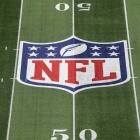As the NFL continues in its attempt to correct for past inadequacies in its handling of racial inequities in America, commissioner Roger Goodell sent a memo to each of the league's 32 teams indicating that the league will for the first time recognize Juneteenth as a holiday and will close its offices in order to "reflect on our past, but more importantly, consider how each one of us can continue to show up and band together to work toward a better future."
A memo that went to NFL teams today: pic.twitter.com/XsKpDmQ6UT
— Adam Schefter (@AdamSchefter) June 12, 2020
As the league memo notes, Juneteenth — celebrated each year on June 19 — commemorates the effective end of slavery in the United States. Though the Emancipation Proclamation was issued nearly two and a half years earlier, it was not until June 19, 1865 when all remaining slaves were freed.
Recognition of the holiday is the latest step in the league's efforts to change its previous stance on how to handle racial issues.
Last week, after several teams and the league itself were criticized for participating in #BlackoutTuesday just a few years after reacting so negatively to Colin Kaepernick's (among others) attempt to draw attention to the issues of police brutality and systemic racism by kneeling during the national anthem, a group of players (led by Saints receiver Michael Thomas) demanded that the league apologize for both not listening to players who had previously raised those issues and for having silenced players who attempted to raise awareness by peacefully protesting during the national anthem; explicitly condemn racism and the systematic oppression of black people; and declare that black lives matter. Within 24 hours, Goodell released a video via the league's Twitter account in which he stated exactly those things.
Earlier this week, the league pledged to donate $250 million over the next 10 years to fight systemic racism, and to "reach out" to players who have "raised their voices" on issues of racial inequality. (Notably, Kaepernick was not mentioned in either of the league's statements.) Goodell stated in the initial video that he protests with the players, and several players (including Adrian Peterson) have made clear in recent weeks that they intend to follow Kaepernick's lead and kneel during the national anthem this coming season.
While several teams issued statements or released videos condemning the recent killing of George Floyd by Minneapolis police (and/or the concept of systemic racism in general) and others voiced support for the Black Lives Matter movement, their players' support of the movement, and the nationwide protests that sprang up in the wake of Floyd's killing, it remains to be seen how team owners will react to the prospect of protests during the national anthem once the actual games start. Four years after Kaepernick first drew such hostility for his protest, the league appears to be softening its stance — or at least is trying to project the image that it has. But the league is still made up of 32 individual teams, each of which has an owner whose own views may not quite be in line with the direction the NFL is increasingly moving on this issue. Steps taken by the league office are a good sign of progress, but as many have noted over the past several weeks, actions taken over the next several years will be a more meaningful indicator of where things stand.

















